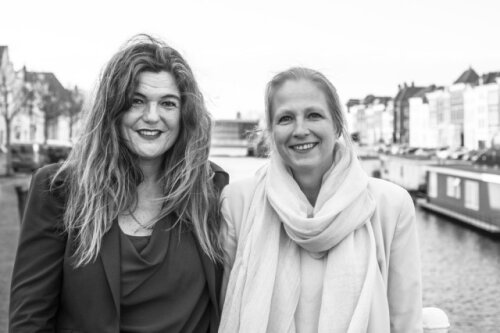Best Collaborative Law Lawyers in Middelburg
Share your needs with us, get contacted by law firms.
Free. Takes 2 min.
Free Guide to Hiring a Family Lawyer
List of the best lawyers in Middelburg, Netherlands
About Collaborative Law Law in Middelburg, Netherlands:
Collaborative law is a voluntary, structured process in which separating partners and their specially trained lawyers work together to reach a negotiated settlement without going to court. In Middelburg, Netherlands, collaborative law is used mainly in family law matters - most commonly divorce, parentage and parenting plans, division of assets, partner and child maintenance, and cohabitation arrangements. The process focuses on open information exchange, joint problem solving and preserving relationships, which can be particularly valuable for families with children or where both parties prefer a private, respectful resolution.
Why You May Need a Lawyer
People choose a collaborative lawyer for several common reasons:
- You want to avoid adversarial court proceedings and keep the process private.
- You need help with dividing complex assets, such as jointly owned property, businesses, pensions and investments.
- You want to protect children from a conflict-heavy divorce and create a workable parenting plan - including custody, visitation and child maintenance.
- You have cross-border issues - for example one partner lives or has assets in another country - and need someone knowledgeable about Dutch procedural rules and international considerations.
- You prefer a problem-solving approach that focuses on future arrangements rather than past blame.
- You need legal advice on practical consequences of agreements, including tax consequences, mortgage and property transfer implications and registering agreements with authorities.
You may not be a good fit for collaborative law if there is ongoing domestic violence, serious power imbalance or urgent protective orders are needed. In those situations, the lawyer will usually advise other forms of legal protection and possibly litigation.
Local Laws Overview
Key aspects of Dutch law that are particularly relevant to collaborative law matters in Middelburg include:
- Civil Code and Family Law - Family law provisions are in the Burgerlijk Wetboek. Divorce, parental authority, custody and maintenance obligations are governed by these rules and interpreted by Dutch courts.
- Divorce procedure - Only a court can legally dissolve a marriage. Collaborative processes produce settlement agreements that are typically submitted to the rechtbank (district court) as part of the divorce petition to obtain a formal court decree.
- Matrimonial property regimes - Since 1 January 2018 most marriages in the Netherlands are entered under a limited community of property unless a prenuptial agreement states otherwise. This affects which assets are marital and how they are divided.
- Parental authority and children - Decisions about parental authority (ouderlijk gezag), residence and contact with children are made with the child’s best interest as primary consideration. Agreements reached collaboratively are assessed by courts if they become part of a formal application.
- Maintenance rules - Child maintenance and partner maintenance follow statutory principles and guideline calculations. Parties can agree on levels and duration, but agreements should be realistic and in line with statutory obligations to be enforceable.
- Legal aid and costs - The Dutch Legal Aid Act (Wet op de Rechtsbijstand) provides means-tested subsidized legal assistance in some cases. Collaborative law is often private pay, but financial support or partial subsidies may be available depending on income and circumstances.
- Local court and administration - Middelburg falls within the jurisdiction of the local rechtbank for family law filings. After a divorce decree, the civil status records at the gemeente (municipality) are updated by the court decision.
Frequently Asked Questions
What exactly is collaborative law?
Collaborative law is a voluntary, interest-based process where each party is represented by a trained collaborative lawyer. The parties and their lawyers sign a participation agreement committing to negotiate in good faith without going to court. The objective is a negotiated settlement covering all relevant issues.
How is collaborative law different from mediation?
In mediation a neutral third-party mediator helps the couple negotiate and parties may not have lawyers participating in meetings. In collaborative law each party has an independent collaborative lawyer who advises and protects that person’s legal interests throughout the process while still committing to a non-litigation approach.
Can collaborative agreements be made legally binding in the Netherlands?
Yes. Agreements on property division, maintenance and parenting are usually formalized in a written settlement. For divorce, the settlement is typically submitted to the court as part of the divorce petition so the court can issue a decree. Some agreements also need to be notarized to effect property transfers or changes to titles.
What happens if the collaborative process breaks down?
A central rule of collaborative law is that if the process breaks down and the parties wish to litigate, the collaborative lawyers withdraw and will not represent the parties in court. New counsel must be engaged for litigation. This rule encourages commitment to settlement but also means parties should understand the consequences before starting.
Is collaborative law suitable if there is domestic abuse or coercion?
Collaborative law is generally not recommended if there is ongoing domestic violence, coercion or severe power imbalance. Those situations often require protective measures and court intervention. A lawyer will assess safety concerns and advise an alternative legal route if necessary.
How much does collaborative law cost in Middelburg?
Costs vary by lawyer, the complexity of the case and the number of meetings required. Collaborative law can be more cost-effective than prolonged litigation but may still be expensive if negotiations are protracted. Ask for a clear fee agreement and an estimate at the first meeting. Legal aid may be available in some cases under the Legal Aid Act, depending on income.
Do collaborative lawyers need special training in the Netherlands?
Yes. Collaborative lawyers undertake additional training in collaborative practice skills, negotiation and often child-focused approaches. Look for lawyers who advertise collaborative law experience or who are members of local collaborative law groups.
Will the meetings and documents be confidential?
Collaborative meetings are based on confidentiality and open exchange of information, but confidentiality protections are contractual rather than absolute. If the matter proceeds to court, documents exchanged in the collaborative process may not be admissible because of the disqualification rule, but certain records may still need to be disclosed for legal or safety reasons. Discuss confidentiality with your lawyer at the outset.
Can collaborative law handle international or cross-border issues?
Yes. Collaborative lawyers in Middelburg can address cross-border matters - for example foreign assets, residency and jurisdictional questions - but these cases are more complex. You should work with lawyers who have experience in international family law or involve specialists as part of the collaborative team.
How long does a collaborative process usually take?
Duration depends on the complexity of the issues, the availability of the parties and the degree of agreement. Some cases conclude in a few months, others take longer. Collaborative law tends to be faster than contested litigation if both sides are committed to problem solving.
Additional Resources
Organizations and bodies that can help people seeking collaborative law assistance in Middelburg include:
- Nederlandse Orde van Advocaten - national bar association that regulates lawyers and can help you find qualified attorneys.
- Collaborative Law Nederland - practitioners group and resource for collaborative methods in the Netherlands.
- Mediatorsfederatie Nederland - for mediator listings and mediation information where mediation may be preferable or complementary.
- Raad voor Rechtsbijstand - information about legal aid and eligibility under the Legal Aid Act.
- Rechtbank Zeeland-West-Brabant - the local court handling family law cases in which formal divorce and enforcement steps are taken.
- Gemeente Middelburg - the municipal authority for administrative matters such as civil status registration after a divorce. Local social services and youth care bodies coordinate child welfare questions under the Jeugdwet.
- Local family support services and community centres - these may offer parenting support, family counselling and referrals to legal services.
Next Steps
If you are considering collaborative law in Middelburg, follow these practical steps:
- Get an initial consultation - contact one or more collaborative lawyers for a first meeting to explain your situation, ask about experience and get a fee estimate.
- Check credentials - confirm the lawyer has collaborative training and relevant family law experience.
- Discuss goals and safety - be open about your objectives and any safety concerns so the lawyer can advise if collaborative law is appropriate.
- Request a written participation agreement - this should set out the scope, confidentiality, fee structure and the disqualification clause that applies if the process ends without agreement.
- Gather documents - prepare financial records, property deeds, pension information, mortgage details and documents about children so negotiations can move efficiently.
- Consider specialists - if you have business interests, international assets or complex financial arrangements, discuss involving financial neutral experts or pension advisers as part of the collaborative team.
- Plan for formalizing the outcome - understand how the negotiated settlement is converted into formal court orders for divorce, maintenance and parental authority, and whether notarization is required for property transfers.
- If you cannot afford private fees, ask about legal aid and whether you meet the means test for subsidized assistance.
Collaborative law can offer a constructive and less adversarial path to resolving family law matters in Middelburg. Speak to a collaborative lawyer early to learn whether it fits your circumstances and to design a practical plan for moving forward.
Lawzana helps you find the best lawyers and law firms in Middelburg through a curated and pre-screened list of qualified legal professionals. Our platform offers rankings and detailed profiles of attorneys and law firms, allowing you to compare based on practice areas, including Collaborative Law, experience, and client feedback.
Each profile includes a description of the firm's areas of practice, client reviews, team members and partners, year of establishment, spoken languages, office locations, contact information, social media presence, and any published articles or resources. Most firms on our platform speak English and are experienced in both local and international legal matters.
Get a quote from top-rated law firms in Middelburg, Netherlands — quickly, securely, and without unnecessary hassle.
Disclaimer:
The information provided on this page is for general informational purposes only and does not constitute legal advice. While we strive to ensure the accuracy and relevance of the content, legal information may change over time, and interpretations of the law can vary. You should always consult with a qualified legal professional for advice specific to your situation.
We disclaim all liability for actions taken or not taken based on the content of this page. If you believe any information is incorrect or outdated, please contact us, and we will review and update it where appropriate.









